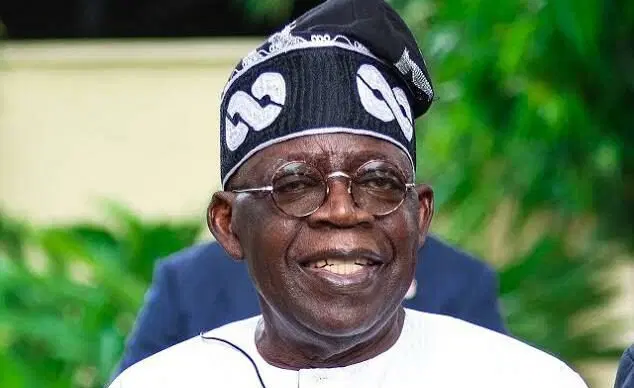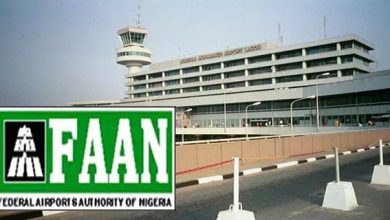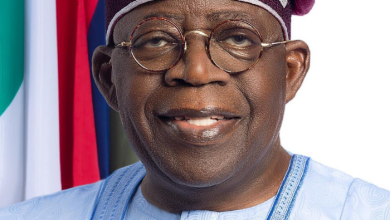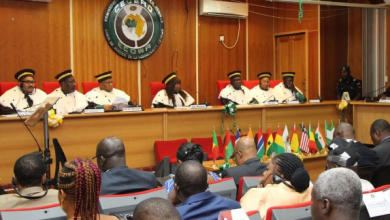Lead
Tinubu seeks N1.15trn domestic borrowing as Senate probes Buhari’s era rail failures

President Bola Tinubu has formally written to the Senate requesting approval for fresh borrowing of N1.15 trillion from the domestic debt market to bridge the funding gap in the 2025 budget.
The request, read by Senate President Godswill Akpabio during plenary on Tuesday, aimed to ensure full implementation of government programmes and projects outlined in the fiscal plan.
According to the letter, the borrowing is in line with the Fiscal Responsibility Act, 2007, which mandates National Assembly approval for all new federal borrowings.
Tinubu explained that the increase was necessary following the rise in the 2025 budget from the Executive’s proposed N49.74 trillion to N59.9 trillion, creating an unfunded deficit of N1.1 trillion.
The request has been referred to the Senate Committee on Local and Foreign Debt, chaired by Senator Aliyu Wammako, with a directive to report back within one week.
On the foreign exchange market, the naira appreciated to N1,433.65 per dollar at the Nigerian Foreign Exchange Market (NFEM), up from N1,436.34 on Monday.
At the parallel market, it traded flat at N1,440 per dollar. The stability comes amid tensions stirred by comments from former U.S. President Donald Trump over alleged killings of Christians and rising religious intolerance in Nigeria.
Meanwhile, Bloomberg reports that Nigeria plans to issue $2.3 billion in Eurobonds this week, including 10-year and possibly 15- or 30-year securities, pending approval from the Ministry of Justice.
Analysts say the rebound in Eurobond prices reflected renewed investor confidence in Nigeria’s sovereign debt market.
Conversely, the domestic stock market continued a downward trend, shedding N611.9 billion in market capitalization. The All-Share Index (NGX ASI) fell by 0.72%, closing at 152,629.61 points.
The Senate session coincided with protests by hundreds of members of the All Indigenous Contractors Association of Nigeria (AICAN), who demanded payment of N760 billion owed for verified completed projects.
Contractors accused the government of favoring foreign firms while neglecting local contractors, warning that failure to settle debts was pushing indigenous firms to bankruptcy.
AICAN leaders stressed that outstanding payments could exceed N4 trillion when pending obligations are included. They demanded that future contracts be fully cash-backed to prevent recurring debt crises.
In another major development, the Senate resolved to conduct a full-scale investigation into railway projects executed under former President Muhammadu Buhari.
The probe follows persistent derailments, vandalism, and mechanical failures on the Itakpe–Warri standard gauge rail line, one of the Buhari administration’s flagship projects.
An ad hoc committee has been established, comprising Senators Adams Oshiomhole, Huseini Babaginda, Adamu Aliero, Wasiu Eshinlokun, Osita Ngwu, Adeola Solomon, Ibrahim Dankwabo, Ireti Kingibe, and Sahabi Yau.
The panel is mandated to submit a comprehensive report within six weeks, examining contracts, funding, and execution standards.
Senate President Godswill Akpabio criticized those responsible for mismanagement, describing the failures as a “trail of waste, debt, and deception,” and called for accountability.
He noted that many derailments occurred before the Tinubu administration took office, emphasizing that the current government inherited a failing system.
The lawmakers directed the Ministry of Transportation and the Nigerian Railway Corporation (NRC) to immediately repair the line, improve safety measures, deploy additional rolling stock, and ensure operational reliability.
The Senate also endorsed the creation of a National Rail Safety and Standards Unit to enforce compliance with international best practices.
Akpabio warned: “We owe Nigerians the truth. We must unravel the mystery behind these failing rail lines and ensure that those who ruined them do not escape scrutiny, or return to power to repeat the same mistakes.”
The developments mark a critical week for Nigeria’s fiscal and infrastructure oversight, highlighting the Senate’s resolve to monitor public debt and hold past administrations accountable for mismanaged projects.



